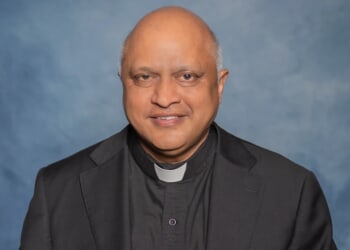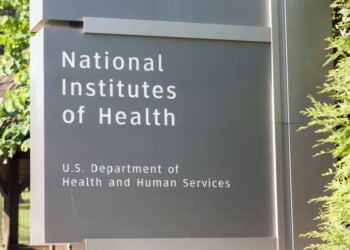Tim Dier is a Thatcher Fellow at the Centre for Policy Studies. He spent 15 years at Morgan Stanley, and believes business efficiency and learning from global policy best practice can boost British prosperity.
You may be forgiven for thinking that the City of London is the bastion of free market capitalism, and that its swashbuckling stockbrokers are well versed in its principles. The City evidently oils the wheels of capitalism, but many of its workers traipsing across London Bridge every morning with flat whites in their hands have forgotten the free market principles upon which the success of the Square Mile was built.
Those who remember often fall silent and keep their heads down, cowed by the pressure to conform and avoid any association with what Theresa May referred to as “the nasty party”. But all is not lost. The fight back has begun – or, more accurately, began last year when the Centre for Policy Studies, led by Robert Colville, launched its Thatcher Fellowship. The programme is designed to introduce the sharpest minds from business and the City to the intellectual, academic, and political arguments for free markets, and give them an understanding of how Westminster really works.
As someone from the City who is interested in ideas, contributing to public life and reversing our national decline, I had the privilege of being one of CPS’s inaugural Thatcher Fellows. With the Conservative Party likely confined to opposition until 2029 at the earliest, there was no better time to immerse oneself in the world of think-tanks as they help develop policy ideas to rescue us from our sorrowful state.
The fellowship intake was truly exceptional, carefully selected from the cream of the private sector’s bankers, lawyers, consultants and entrepreneurs. The programme is focused around monthly dinners with high-level guest speakers on topics related to ideology and policy, the nuts and bolts of how Westminster works, and the relationship between business and politics.
The calendar of events, expertly organised by Emma Revell, was telegraphed in advance, and was pitched at the right level to fit in with the Fellows’ day jobs. For those who were able to contribute more, whether by writing for CapX, feeding into the CPS’s Margaret Thatcher Conference lineup, meeting the Board and wider team, and getting stuck in with policy development, the opportunities provided by the Fellowship opportunities are plentiful.
The CPS’s Research Director Karl Williams provided regular reading lists featuring works by influential economists, political theorists, and historians, which would have made Lady Thatcher, the co-founder of CPS, proud. Without fail the texts sparked debate and served to remind us of the importance of laying the political and ideological groundwork for the long march ahead.
Not a meeting or dinner went by where I wasn’t intellectually stimulated, challenged, and on occasion humbled, by the sheer brilliance of the other fellows. Free flowing debate on an array of topics with senior Conservative politicians, historians, journalists, CPS leadership, and captains of industry gave us incredible insight into how Westminster works – or, all too often, doesn’t.
Indeed, the divide between Westminster and the private sector is even more pronounced than I anticipated, showing no sign of narrowing. Apart from the vocal and unfortunately effective lobby groups seeking taxpayer subsidies or regulatory protections, there is a notable lack of understanding of genuine business interests in Westminster.
Having been gaslit by the Labour Party’s claims of being pro-business, British business has relinquished its already tenuous trust in the political class. Thankfully, the CPS and its Thatcher Fellowship are doing their bit to help bridge that gap and position the Conservative Party as the party of business once more.
Our nation may be in a state of decline, but this last year has filled me with confidence that with grit and determination it’s not too late for the UK to reverse course and become a serious country again. Programmes like the CPS’s Thatcher Fellowship will play a leading role in helping make that happen.
The fellowship culminates this summer with an away weekend at Jesus College, Cambridge, with an all-star line-up of speakers, and Fellow-led presentations and debates. As well as coming away from the fellowship fired up with ideas and a network to help reverse our country’s fortunes, many of the fellows will also leave with something equally important: lifelong friendships. It will come as no surprise that I would thoroughly recommend that those who are eligible consider applying for the next cohort of fellows.
Indeed, I look forward to meeting them. When the next cohort start their programme in September, they’ll be introduced not just to the wider CPS team and board, but us existing Fellows too. From the start the CPS impressed upon us their belief that the Fellowship should be the start of a hopefully fruitful working relationship, this isn’t just a one and done programme but a key part of a movement across the right to broaden and deepen the relationship between business and politics, for the benefit of both.
For those interested in applying to be on the 2025/26 Thatcher Fellowship, applications are now open and close on 1 June at 1700hrs. If you would like to find out more about how to sponsor the CPS Fellows, either by financially supporting the programme or by sharing your expertise, please get in touch with Elliott Mears, CPS Managing Director, at elliott@cps.org.uk.


![NYC Tourist Helicopter Falls into Hudson River, Siemens Executive and Family Among Those Killed [WATCH]](https://www.right2024.com/wp-content/uploads/2025/04/NYC-Tourist-Helicopter-Falls-into-Hudson-River-Siemens-Executive-and-350x250.jpg)






![Green Day’s Cringe Trump Diss Ends in Fire and Evacuation [WATCH]](https://www.right2024.com/wp-content/uploads/2025/04/Green-Days-Cringe-Trump-Diss-Ends-in-Fire-and-Evacuation-350x250.jpg)
![Red Sox Fan Makes the ‘Catch of the Day’ with Unconventional ‘Glove’ [WATCH]](https://www.right2024.com/wp-content/uploads/2025/04/Red-Sox-Fan-Makes-the-‘Catch-of-the-Day-with-350x250.jpg)






